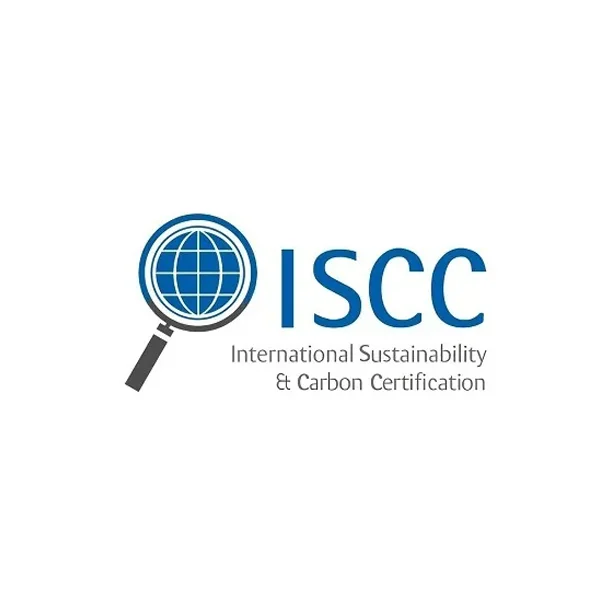ISCC certification is the abbreviation for International Sustainability and Carbon Certification. It is a certification system for biomass resources and sustainable energy, managed by the International Society for Sustainability and Carbon Certification (ISCC). The goal of ISCC certification is to ensure the sustainability of biomass resources and sustainable energy, promote the development of green economy, reduce greenhouse gas emissions, and protect the ecological environment.
ISCC certification mainly includes the following aspects:
Source of raw materials: ISCC certification requires that the biomass resources used must come from legitimate and sustainable sources, and must not involve forest destruction, illegal cultivation, or infringement of land use rights.
Production process: There are clear requirements for the production, collection, transportation, and processing of biomass resources to ensure compliance with environmental and social responsibility standards.
Greenhouse gas emissions: Measuring and monitoring greenhouse gas emissions involved in biomass resource production and utilization to reduce carbon footprint and impact on climate.
Sustainable development: ISCC certification emphasizes the principles of sustainable development, including biodiversity conservation, land use management, social responsibility, and fair working conditions.
Traceability and chain of custody management: Ensure the traceability of biomass resources and the traceability of the processing process, with strict records at every step from raw material collection to final product.
ISCC certification is applicable to all aspects of biomass resources and sustainable energy, including biomass producers, processors, traders, transporters, energy producers, etc. By obtaining ISCC certification, enterprises can demonstrate their efforts in sustainability and carbon reduction, improve sustainable development levels, increase market competitiveness, and meet international environmental and sustainable development requirements.
ISCC certification has been widely applied globally, especially in developed countries such as Europe and North America, where the sustainability and environmental requirements for biomass resources are more stringent. ISCC certification is widely recognized as an important sustainability certification in the energy industry, food and feed production, biomass fuel production, and other fields.
In summary, ISCC certification is an international certification system aimed at promoting the sustainable development and environmental protection of biomass resources and sustainable energy. By complying with the requirements of ISCC certification, enterprises can enhance sustainability management, improve product sustainability, and meet the demands of the international market for environmental protection and sustainable development.
Application method:
Supply chain transparency: ISCC certification aims to ensure the traceability and sustainability of biomass resources. The certification system covers the entire process of biomass raw material cultivation, collection, processing, transportation, and final use. This ensures the sustainability of biomass resources and helps control carbon emissions and other environmental impacts.
Carbon reduction: ISCC certification focuses on the carbon reduction potential of biomass resources. Through certification, enterprises can demonstrate that their biomass resources contribute to reducing greenhouse gas emissions during production and use, thereby promoting low-carbon economy and sustainable environmental development.
The situation where ISCC certification certificate needs to be provided:
Biomass production enterprises: ISCC certification is applicable to enterprises that produce and supply biomass resources, such as farms, plantations, biofuel production plants, etc. These companies hope to prove that their production processes meet sustainability standards and ensure the sustainable source of biomass.
Energy industry: Energy companies may require ISCC certification to demonstrate their use of sustainable biomass resources for energy production, such as biofuels, biodiesel, etc. This helps demonstrate their commitment to carbon reduction and environmental protection.
Food industry: ISCC certification also applies to the production and supply of biomass resources related to food, such as sustainably grown crops for food processing.
Sustainable regulations: Some governments in countries or regions may consider ISCC certification as a way to comply with sustainable biomass usage regulations. Enterprises may need to provide ISCC certification certificates to meet regulatory requirements in the production, processing, or sales of biomass.
Please note that the specific requirements and application of ISCC certification may vary depending on industry, country, and region. If you have specific needs or questions, it is best to directly contact ISCC certification bodies or local industry organizations for accurate guidance and information. Meanwhile, over time, new certification standards or updates may emerge, so it is recommended that you consult the latest information.

